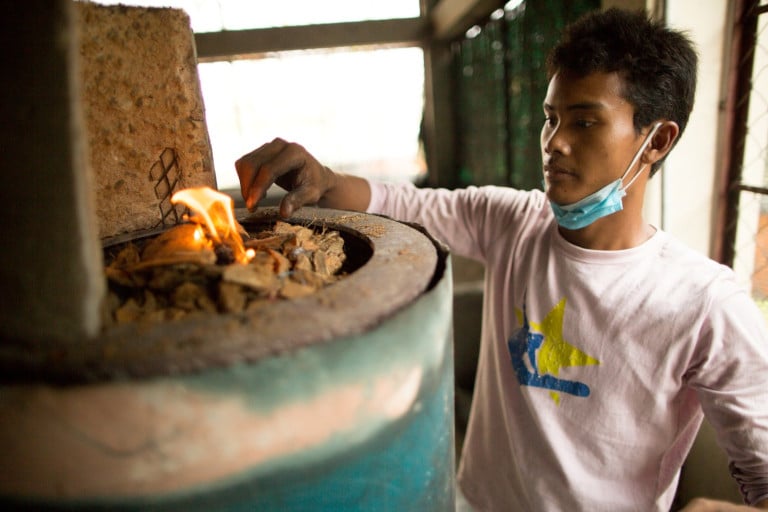RENEWABLE ENERGY DEVELOPMENT
Promote the rollout of renewable energy through appropriate, sustainable local solutions.
Missions and challenges
The replacement of fossil fuels with renewable alternatives, locally sourced as far as possible, is one of the cornerstones of the energy transition towards a low-carbon economy. For Geres, it is also a vital lever in poverty reduction and greater business competitiveness in that the operating and maintenance costs of renewables are less sensitive than fossil fuels to fluctuations in global markets.
Geres operates at different levels
- It supports households investing in the installation of renewable energy production equipment, such as passive, photovoltaic and thermal solar.
- It helps industrial VSEs and SMEs to organize their renewable energy supply, as well as renewable energy producers themselves (micro-grid operators, forest communities and producers of charcoal, briquettes or biogas), by providing them with appropriate solutions for developing and ensuring the sustainability of their activities.
As an innovation accelerator, Geres works in co-operation with the private sector to adapt and optimize innovative solutions in various operational scenarios and test new renewable energy production or storage techniques in the field. In particular, in France and countries of the South, it plays a part in structuring methanizable biomass or sustainable fuel and biofuel supply chains.
Finally, Geres helps local and national authorities to roll out renewable energy solutions, which require facilitative policy frameworks and consistent, long-term planning if they are to be competitive vis-à-vis frequently subsidized fossil fuels, as well as accessible to the most vulnerable and isolated people.

A VARIED FIELD OF EXPERTISE
Housing and daily life
- Photovoltaic solar (Morocco)
- Thermal solar (in France and Afghanistan in earlier projects)
- Sustainable charcoal production (Cambodia)
Craft sector, businesses and services
- Photovoltaic solar (Mali, Myanmar)
- Development of short supply chain biofuels (Mali)
- Structuring of innovative value chains producing energy from agricultural and forest biomass (in Cambodia and project in Tajikistan)
Agriculture and forestry
- Methanation plants for agricultural by-products in France
- Optimization of agricultural biomass recycling through methanation (France)
- Forest restoration to produce sustainable biomass (Cambodia)
DIRECT IMPACTS IN RELATION TO THE SDG’S
- Reduced expenditure on imported energy thanks to mobilization of renewable local resources
- Income generation for renewable energy producers
- Climate change mitigation
- Reduction in pollution caused by use of fossil fuels
Geres activities contribute directly to 4 SDG’S
- ODD 7: Use of renewable energy
- ODD 8: Access to decent jobs
- ODD 9: Industry, innovation and infrastructure
- ODD 13: Climate action
CROSS-CUTTING APPROACHES GUARANTEEING QUALITY
To ensure the sustainability and scaling up of our activities, our expertise is provided according to methodological principles with one major ambition: enabling the most vulnerable to become decision-makers and stakeholders in the energy transition.
In the field of renewable energy, we adopt three main approaches:
Economic development
To refine the economic models for rolling out renewable energy production solutions and facilitate the establishment of new trades and services (production, installation and maintenance of equipment for producing and using renewable energy).
Territorial approach
To promote renewable energy as part of territorial energy transition processes by optimizing choices on the basis of local resource availability and taking account of the energy service needs of the various stakeholders in the territory concerned.
Capacity-building
Supporting and advising local stakeholders to facilitate scaling up and rollout of renewable energy-related activities.
